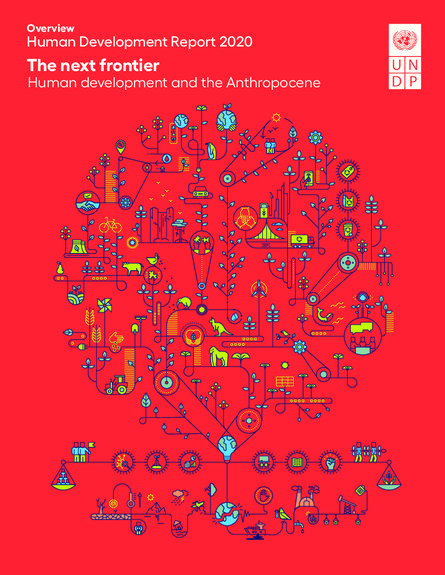
This is an overview of the United Nation's 2020 Human Development Report.
The UNDP's Human Development Report for 2020 offers an experimental global index offers a new measurement of human progress that illustrates the challenge of tackling poverty and inequality while easing planetary pressure. The COVID-19 pandemic is the latest crisis facing the world, but unless humans release their grip on nature, it won’t be the last, according to a new report by the United Nations Development Programme (UNDP), which includes a new experimental index on human progress that takes into account countries’ carbon dioxide emissions and material footprint.
To report introduces an experimental new lens to its annual Human Development Index (HDI). By adjusting the HDI, which measures a nation’s health, education, and standards of living, to include two more elements: a country’s carbon dioxide emissions and its material footprint, the index shows how the global development landscape would change if both the wellbeing of people and the planet were central to defining humanity’s progress. With the resulting Planetary-Pressures Adjusted HDI – or PHDI - a new global picture emerges, painting a less rosy but clearer assessment of human progress. For example, more than 50 countries drop out of the very high human development group, reflecting their dependence on fossil fuels and material footprint. Despite these adjustments, countries like Costa Rica, Moldova, and Panama move upwards by at least 30 places, recognizing that lighter pressure on the planet is possible.
